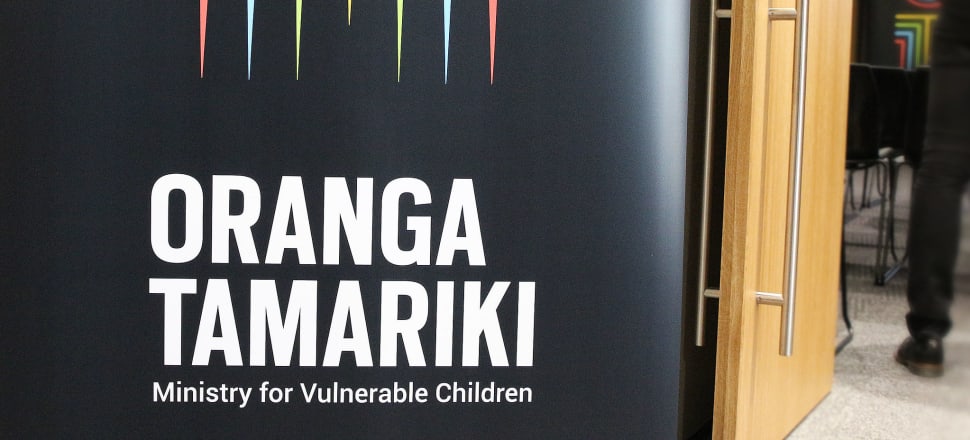
How a committee of junior MPs handles a Bill with potentially catastrophic outcomes for our most vulnerable children will be a major demonstration of the quality of our democratic system, writes David King
Five backbench Labour Party MPs currently hold the fate of our country’s most vulnerable children in their hands.
These five MPs hold the majority on Parliament’s Social Services and Community Committee.
That committee is due to report back to Parliament on June 13 on the horribly-named and egregious Oversight of the Oranga Tamariki System and Children and Young People’s Commission Bill.
That Bill, while in Orwellian terms purporting to strengthen the Office of the Children’s Commissioner’s advocacy role, effectively emaciates it.
In doing so it exposes the most vulnerable children in New Zealand - those in the care of Oranga Tamariki or at risk of entering care - to danger from the lack of effective monitoring of what Oranga Tamariki does.
It is not just me saying this.
The committee received roughly 300 submissions as well as a 10,000 petition opposing the Bill.
I watched all the oral submissions being made.
No one supported the Bill - all (except two who didn’t take a view) saw it as dangerous for children.
They all made the same points about the terrible deficiencies of the Bill over and over again.
The Commissioner should not be replaced by a board, so vital is it that children know who their Commissioner is, and the monitoring and complaints functions should stay with the Commissioner (given the Ombudsman, who would take on the complaints role, is slow and not child-centred).
The submissions said the Bill should be paused until the findings of the Royal Commission on Historical Abuse in State Care and in Faith-based Institutions reports in June next year.
They also said inadequate consultation had taken place and more time needed to be given for consultation - particularly with children and young people and Māori - before such profound decisions were made.
The particular perspective I can add is that, as a former senior public servant, I have assessed all the available departmental and Cabinet papers on the Bill.
They quite frankly embarrass me: the quality of the analysis is not just poor, there is little I would call substantive analysis, certainly not enough to see how the Government could reasonably come to such decisions.
My only conclusion is that the Government is ‘sick’ of having a Children’s Commissioner who may criticise it and, more charitably, thinks it could do a better job of ‘fixing’ Oranga Tamariki if the noise from the Commissioner was not there.
If this is the conclusion the Government has reached (but decided not to make explicit), it is terribly misguided.
The whole point of having a Children’s Commissioner is that children are vulnerable and there needs to be an independent monitor who keeps a close eye on those who have power over them.
History is littered with examples of what can happen when people have power over children without such a safeguard.
The Bill effectively reintroduces that catastrophic risk into the system.
And it does so in Orwellian terms, by creating an ‘Independent’ Monitor within the Education Review Office, which by definition cannot be independent. This creates the bizarre situation where one departmental chief executive monitors the activity of a colleague departmental chief executive.
Trust this arrangement not to sweep things under the carpet?
I think not.
So who are these junior Labour MPs with the fate of our children in their hands?
They are chair Angie Warren-Clark (list), Glen Bennett (New Plymouth), Emily Henderson (Whangārei), Anahila Kanongata’a-Suisuiki (list) and Terisa Ngobi (Õtaki).
I find it hard to believe that after hearing submissions they could possibly consider the Bill to be a good thing.
Particularly after reading their maiden speeches in Parliament.
All came into Parliament with backgrounds among the vulnerable, saying in various ways they were there to make a difference.
Even if these MPs make a few, largely symbolic, amendments (such as restoring the Commissioner’s right to go directly to the Prime Minister), in no way do I think they could be adhering to their aspirations.
They face the classic dilemma of backbenchers - more familiar under our previous First Past the Post system - who hold a majority for the Government on a select committee.
Do they stand up for their principles and persuade their seniors in Cabinet that in this case they have it wrong and need to reconsider the Bill, or do they ‘swallow a dead rat’ to keep their prospects of advancement to a ministerial post alive?
History says the dead rat will be swallowed.
But history can be made.
These junior MPs have the opportunity to demonstrate the robustness of our democracy - the ability of the backbench to hold the Cabinet accountable when it gets it wrong.
A well-functioning Cabinet and a well-functioning Caucus should have the capability to have courageous conversations and emerge with principle and political aspirations intact.
It will be a major demonstration of the quality of our democratic system.
It’s just a pity that the lives of our most vulnerable children have to be at stake for us to learn the nature of our system.
The clear way forward is for the Government to say it stands by its policy position at this point, but that it has heard submitters’ voices and decided to push the pause button until the Royal Commission has reported next year.
June 13 looms.







